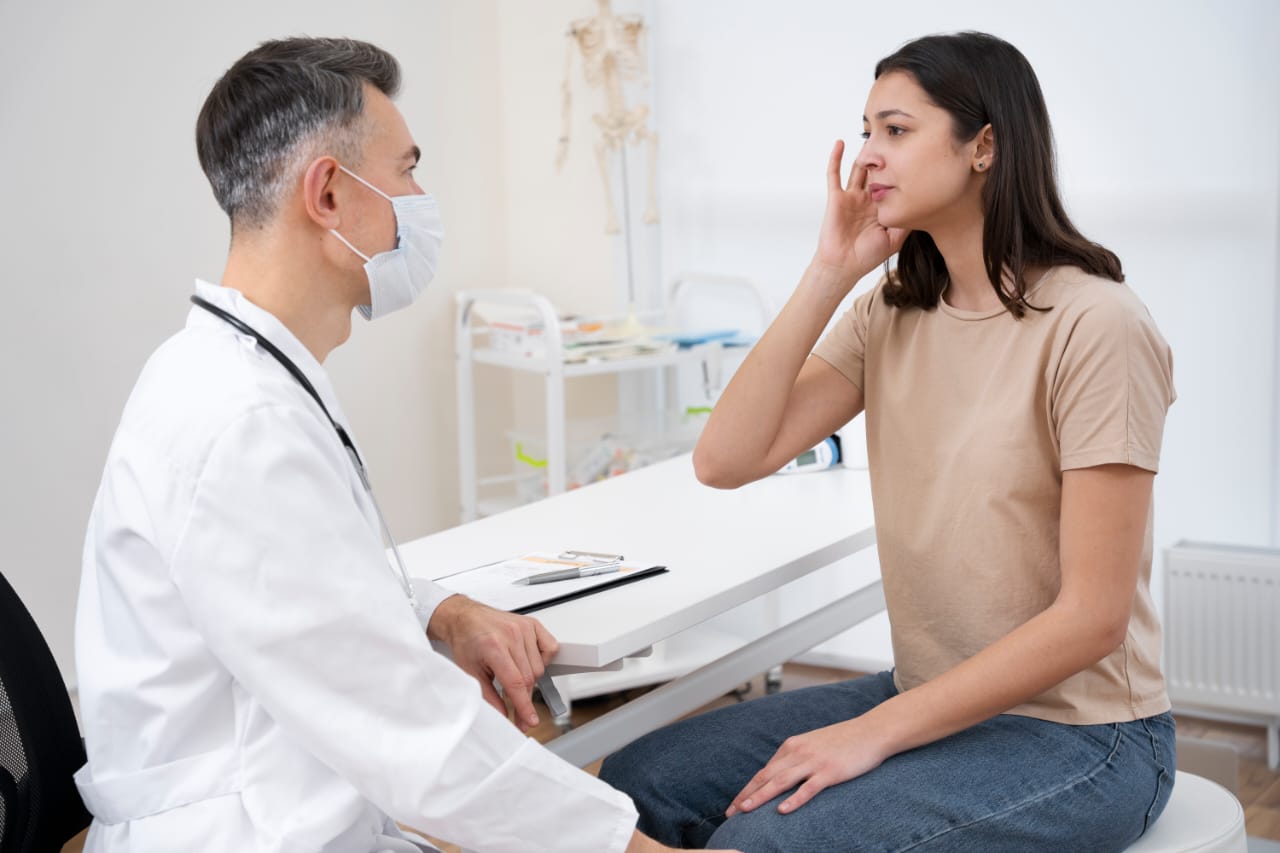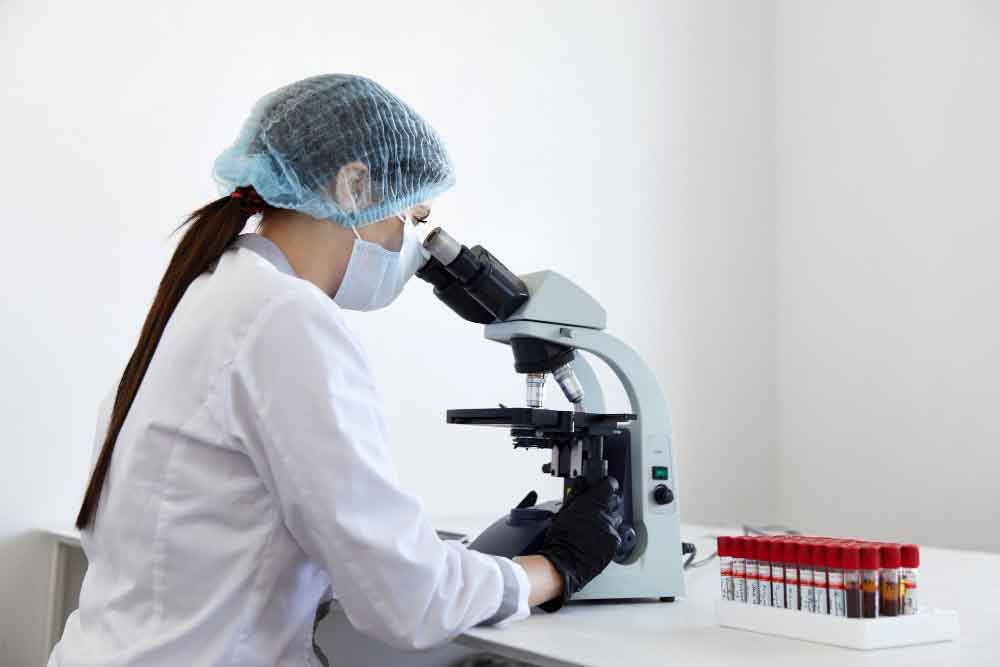-
 Mail us
Mail usinfo@myhealthhospitals.com
-
 Toll Free
Toll Free+91 9111674111
- Book Appointment
ENT
Acute sinusitis is caused when the sinuses (spaces inside your nose) become inflamed and swollen .This inflammation interferes with mucus drainage and causes sinus blockage with symptoms.
Symptoms include difficulty breathing through your nose,Swelling around your eyes and face , and throbbing facial pain or a headache.
Most cases of acute sinusitis resolve within a week to 10 days. Sinusitis that lasts for more than 12 weeks despite taking medical treatment is called chronic sinusitis and usually treated by surgery.
Acute sinusitis is most often caused by the common cold(Viral or bacterial)-
You may be at increased risk of getting sinusitis if you have:

Acute sinusitis signs and symptoms often include:
Other signs and symptoms include:

Your Surgeon usually makes the diagnosis based on the physical exam and investigations advised to rule out other conditions -
Nasal endoscopy - Endoscope is used to visually inspect your sinuses.
Imaging studies - A CT scan shows in detail assessment of your sinuses and nasal area.
Nasal and sinus samples – Rarely used to diagnose infection in sinus cases.
Allergy testing – Allergy skin testing helps to rule out allergy as cause of frequent sinusitis.

Non Surgical Treatment of Sinus Infection -
Nasal Corticosteroids - Nasal sprays help to prevent and treat inflammation of the sinuses lining. The treatment is done through fluticasone , budesonide , mometasone and beclomethasone .
Oral of injected corticosteroids - Used only in cases of severe sinusitis that help relieve inflammation and other symptoms of sinusitis.
Medicines for allergy - If allergy is the major cause behind sinusitis, they will recommend allergy medications.
Antibiotics- Sinusitis can be caused due to bacterial infection for which antibiotics are used .
Antifungal treatment -you may receive antifungal medicines if the infection is caused by fungus.
When symptoms of sinus infection become severe despite medical tratment, surgery becomes treatment of choice . The 3 most commonly performed sinusitis surgeries are as follows:
FESS is the most commonly performed surgery for sinusitis. It is primarily aimed at widening the passages between the nose and sinuses to remove infected tissues so as to allow the trapped mucus to drain out. This surgery is performed with the help of an endoscope, which allows your surgeon to look inside your nose and sinuses, and perform surgery under image guided system.
Balloon sinuplasty is a minimally-invasive method of treating sinusitis . A small balloon is inserted into the nasal passage with the help of an endoscope and catheter, which increases the nasal passage way to your sinus and helps in drainage of mucus.
The Caldwell Luc Surgery is performed when other treatment methods fail to offer relief from sinusitis. In this surgery , an incision is made in the upper gum, between the upper lip and upper gum tissue to gain access to the maxillary sinus and damaged tissue or bone is removed through the incision. Sutures are then used to close the gum incision after complte drainage .

Your sinuses are four paired cavities (spaces) in your head. Narrow passages connect them. Sinuses make mucus that drains out of the passages in your nose. This drainage helps keep your nose clean and free of bacteria, allergens and other germs (pathogens).
Colds, COVID-19 , allergies and sinus infections all have similar symptoms. It can be difficult to tell them apart. The common cold typically builds, peaks and slowly disappears. It lasts a few days to a week. Nasal allergies cause sneezing, itchy nose and eyes, congestion, runny nose and postnasal drip (mucus in your throat). They usually don’t cause the facial pain that sinus infections do. COVID-19 can cause additional symptoms, like fever and shortness of breath. A cold, COVID or allergies can all cause sinus infections. You can test yourself or have a provider test you for some viral infections, like COVID-19 and the flu.
Sinusitis itself isn’t contagious. But the viruses and bacteria that can cause it are. Remember to follow good hand washing practices, avoid other people if you’re sick and sneeze or cough into your elbow.
You don’t necessarily need to treat sinusitis — it often goes away on its own. Very rarely, untreated sinus infections can lead to life-threatening infections. This happens if bacteria or fungi spread to your brain, eyes or nearby bone.
No. Providers often wait to see how long your symptoms last before prescribing antibiotics. Many sinus infections are caused by viruses. You can’t cure viral infections with antibiotics. Overusing antibiotics or using them to treat viral infections can lead to unnecessary side effects or antibiotic resistance.This may make future infections harder to treat.
Sinusitis usually only lasts a week to 10 days. You can usually treat it with over-the-counter medicines and at-home treatments. If you have chronic sinusitis or if it keeps coming back, there may be underlying causes that you’ll need to treat.
If you cannot find answers to your queries, please fill out the ENQUIRY form or call the number below. We will contact you shortly
+91 9111674111Visit any of our My Health Hospitals branches for advanced medical care and expert consultations.
H.No 15-24-212, MIG-212, Rd Number 1, K P H B Phase 1, Kukatpally, Hyderabad, Telangana 500072
H.No:-12-5-30, WhiteHouse, Moula Ali Rd, South Lalaguda, Tarnaka, Secunderabad, Telangana 500017